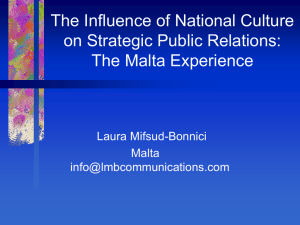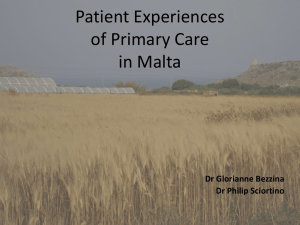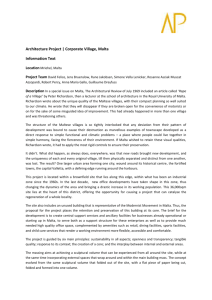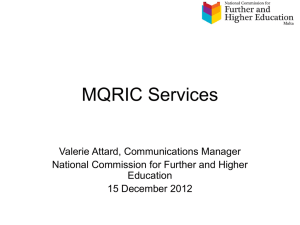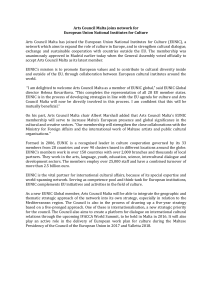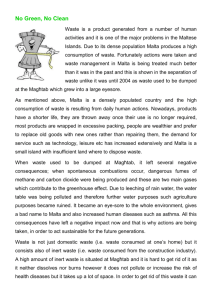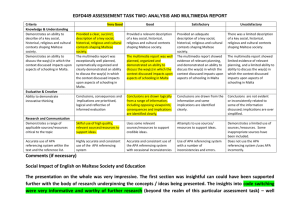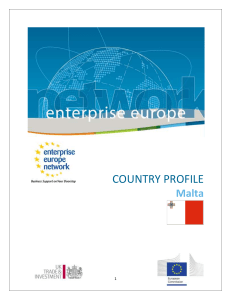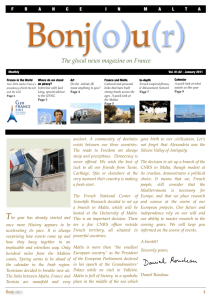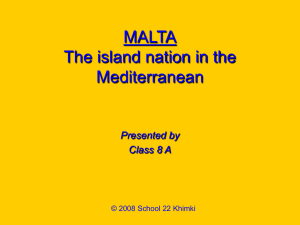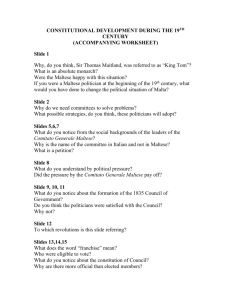Malta
advertisement
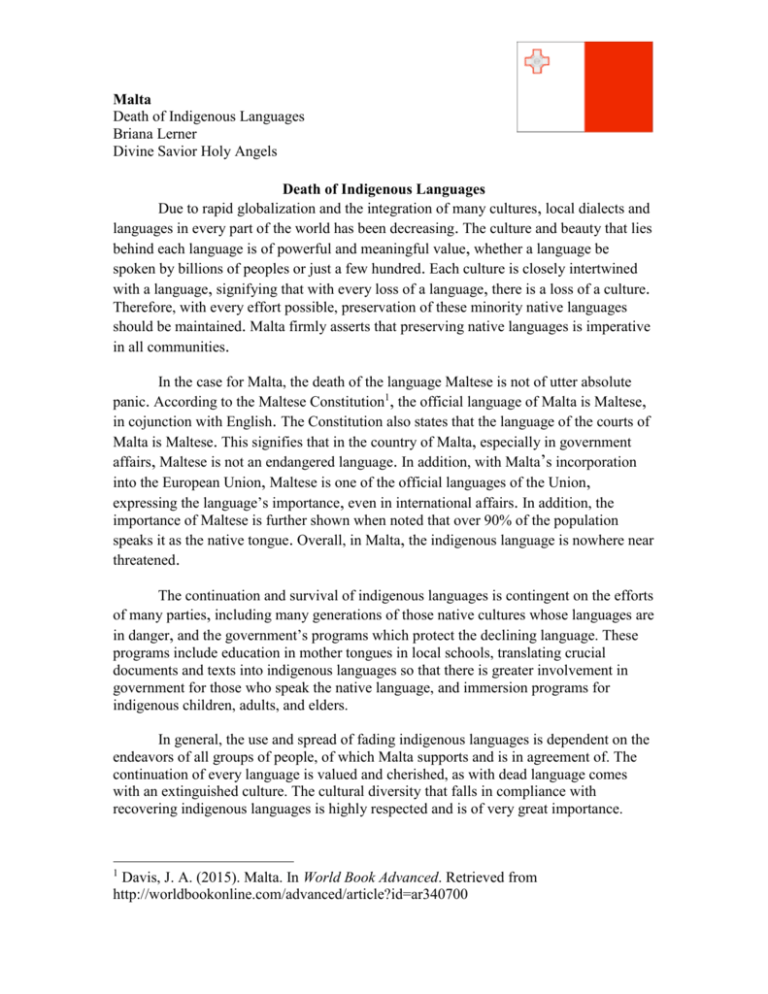
Malta Death of Indigenous Languages Briana Lerner Divine Savior Holy Angels Death of Indigenous Languages Due to rapid globalization and the integration of many cultures, local dialects and languages in every part of the world has been decreasing. The culture and beauty that lies behind each language is of powerful and meaningful value, whether a language be spoken by billions of peoples or just a few hundred. Each culture is closely intertwined with a language, signifying that with every loss of a language, there is a loss of a culture. Therefore, with every effort possible, preservation of these minority native languages should be maintained. Malta firmly asserts that preserving native languages is imperative in all communities. In the case for Malta, the death of the language Maltese is not of utter absolute panic. According to the Maltese Constitution1, the official language of Malta is Maltese, in cojunction with English. The Constitution also states that the language of the courts of Malta is Maltese. This signifies that in the country of Malta, especially in government affairs, Maltese is not an endangered language. In addition, with Malta’s incorporation into the European Union, Maltese is one of the official languages of the Union, expressing the language’s importance, even in international affairs. In addition, the importance of Maltese is further shown when noted that over 90% of the population speaks it as the native tongue. Overall, in Malta, the indigenous language is nowhere near threatened. The continuation and survival of indigenous languages is contingent on the efforts of many parties, including many generations of those native cultures whose languages are in danger, and the government’s programs which protect the declining language. These programs include education in mother tongues in local schools, translating crucial documents and texts into indigenous languages so that there is greater involvement in government for those who speak the native language, and immersion programs for indigenous children, adults, and elders. In general, the use and spread of fading indigenous languages is dependent on the endeavors of all groups of people, of which Malta supports and is in agreement of. The continuation of every language is valued and cherished, as with dead language comes with an extinguished culture. The cultural diversity that falls in compliance with recovering indigenous languages is highly respected and is of very great importance. 1 Davis, J. A. (2015). Malta. In World Book Advanced. Retrieved from http://worldbookonline.com/advanced/article?id=ar340700
